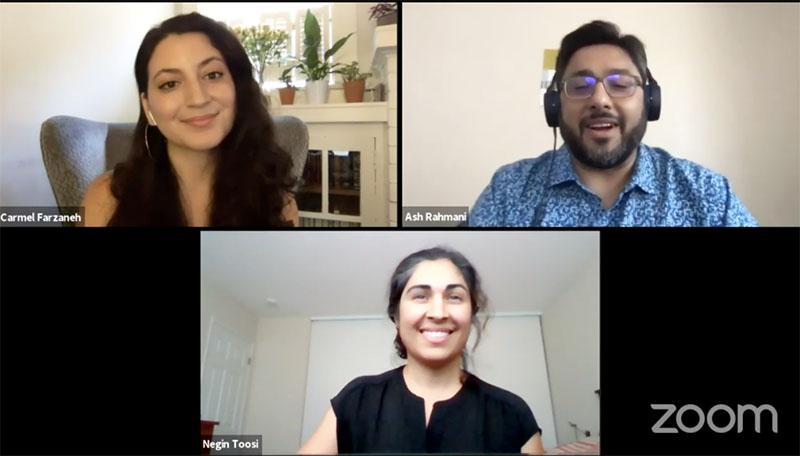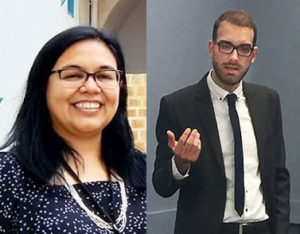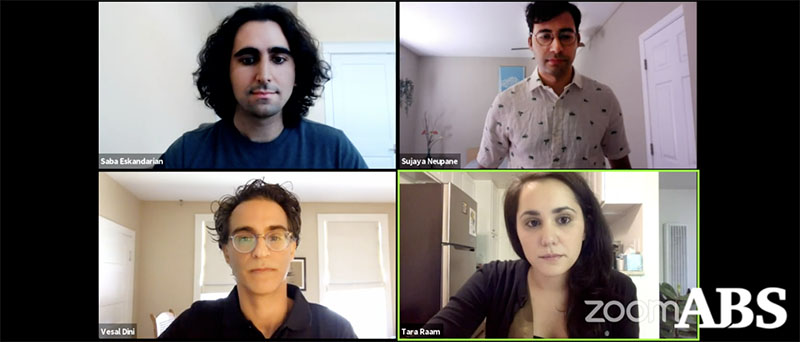



How can the process of generating knowledge be widened so that everyone can participate? On what terms can scientific methods account for the spark of divinity in human nature and the vision of an advancing civilization? If knowledge is for the benefit of all humanity, how can it be gathered and made stronger without an insistence on some ideas dominating or competing against others?
And within professions and academic fields, how can unifying ideas inspired by the Baha’i teachings be introduced into conversation spaces that influence how those fields operate in society?
Those questions and more were at the heart of presentations the first week of August 2020 on behalf of “working groups” of Baha’is in several professional and academic areas, part of the annual conference of the Association for Baha’i Studies–North America.
These online “methodologies” sessions flowed from a two-day seminar in June that brought together groups focusing on Africana studies (article to be added soon), economics, education, social sciences, natural sciences and engineering, and religious studies.
Study, consultation and collaboration on summarizing their collective ideas were guided by a 2013 message from the Universal House of Justice, global governing council of the Baha’i Faith, which stated:
“At the heart of most disciplines of human knowledge is a degree of consensus about methodology — an understanding of methods and how to use them appropriately to systematically investigate reality to achieve reliable results and sound conclusions.”
It states that Baha’is involved in various disciplines — economics, education, history, social science, philosophy and many others — have the responsibility of examining the methods of generating knowledge in their fields in light of the Revelation of Baha’u’llah and the society-healing principles found in the Baha’i teachings.
During the conference, each “methodologies” presentation spotlighted how Baha’is can contribute to the advancement of their fields by:
Presentations on behalf of five working groups shared these and other thoughts:


Economics. It’s difficult to measure people’s actions mathematically in economic science, noted doctoral student Stefan Faridani on behalf of the economics working group. Many researchers get around that dilemma through the technique of falsification: for example, if consumers in sufficient numbers don’t behave as a theory predicts, the theory must be wrong. Such an approach often falls short, though, in determining what parts of a theory may be sound or not. And it can be so rigid it might seem to rule out ideas that could still be useful.
Additionally, the Baha’i teachings envision advances in civilization, and the methodology of falsification “doesn’t fit very well [for] a social scientist who is thinking about social transformation … a just society and an altruistic individual,” Faridani said.
The working group found no clear path toward advancing knowledge and methodologies in the field, acknowledged Andrés Shahidinejad, also a doctoral student. But the group agreed that in that work, Baha’i scholars need to strive not only to take account of the vision of future society, but also read reality to address current inequities and disparities. “We’re encouraged by the sense of possibility and the vision that is laid out” in the Baha’i teachings, Shahidinejad said.
Inclusive spaces where diverse groups of people consult on issues and solutions can help create “a more full picture of economic reality,” Faridani added.


Social sciences. Challenges and possibilities in this field can be gleaned from the case of a community that suffers greatly from poverty, pollution and displacement: East Palo Alto, California, said Carmel Farzaneh, a doctoral student at the University of California, San Diego.
Being close to leading universities, this community has been oft-studied. But residents often aren’t included in the learning process, and the “fixes” stemming from the research have not had lasting results.
She told of a team in the community that has initiated a project to strengthen “climate resiliency” by involving residents in identifying needs and consulting on potential solutions. Residents are planning and carrying it out “shoulder to shoulder with their own neighbors.”
This is one way Baha’i-initiated core activities of community building can contribute to “participatory research” that adds a spiritual dimension to such community-based efforts, according to presenters, who also included Negin Toosi and Ashiyan Rahmani-Shirazi, educators at the University of California, East Bay.


Education. A working paper is being fleshed out through discussion in several virtual gatherings. Thaddeus Herman, a doctoral student focusing on global education studies, outlined five areas of inquiry the group is pursuing:
Responding to a question from a session participant, Zaynab Gates noted that principles drawn from Indigenous and non-Western educational traditions often “give us room to engage with spiritual discourse,” not just in educational practice but also in the daily life of society. Her research focuses on Indigenous educational practice and policy in Latin America.


Natural sciences and engineering. Baha’i involvement in research and discourse won’t likely challenge grand scientific theories; they are here to stay. Likewise, they will not necessarily change the specifics of what is done in laboratories.
“What we will do is rethink the broader framework of what science can accomplish, and what it can explain and what it cannot explain,” said Tara Raam, a postdoctoral fellow in neurobiology. A spiritual view of the whole human being, for example, can help in the framing of neurological conditions beyond physical factors to include social and environmental perspectives.
It’s widely accepted that there’s no such thing as a value-free person using foolproof methods, pointed out physics professor Vesal Dini. Thus when diverse viewpoints contribute to bodies of knowledge, objectivity grows beyond individual values and methods and becomes a “social accomplishment,” working best in an atmosphere of support and encouragement.
Saba Eskandarian, a doctoral student in computer science, said care is needed in examining the values underlying the design of technology and infrastructure, so that they meet people’s authentic needs rather than being relied on as solutions in themselves.
A “more collective mode of thinking” can alleviate the pitfalls of a scientific culture that may be obsessed with verification or falsification of theories, said Sujaya Neupane, another postdoctoral neuroscientist. Spiritual values of equality and respect, as encouraged in Baha’i teachings, can strengthen this type of generation of knowledge.


Religious studies. Study of religion poses a special challenge in that there isn’t even a consensus about what religion is. Julia Berger, who holds a doctorate in theology and religious studies, said that some 19th- and 20th-century scholars described religion in terms of relationship with the Divine while others termed it as an illusion and set it apart from rationality.
Christopher White, a religious studies professor at Vassar College, outlined a few current conversations about the study of religion: How to describe people’s religious lives? Who is a trustworthy source of knowledge? How can we avoid reducing religion to a set of psychological phenomena? Is it possible to develop an objective set of values about religious practice?
And naturally, what can Baha’is add to this discourse? Berger noted the Baha’i sacred writings explicitly discuss the purpose of religion, its unfoldment through history, and its relationship with science and knowledge. In recent times, she added, many scholars have arrived at similar insights in their own work. “The field is really fertile for engagement with like-minded souls who are very much trying to advance knowledge,” she said.
These factors put scholars who delve into Baha’i teachings, White added, into an ideal position to “bring insights from the Revelation, new kinds of questions … to develop new directions and approaches.”


![]()
![]()
Whether you are exploring the Bahá'í Faith or looking to become an active member, there are various ways you can connect with our community.
Please ensure that all the Required Fields* are completed before submitting.